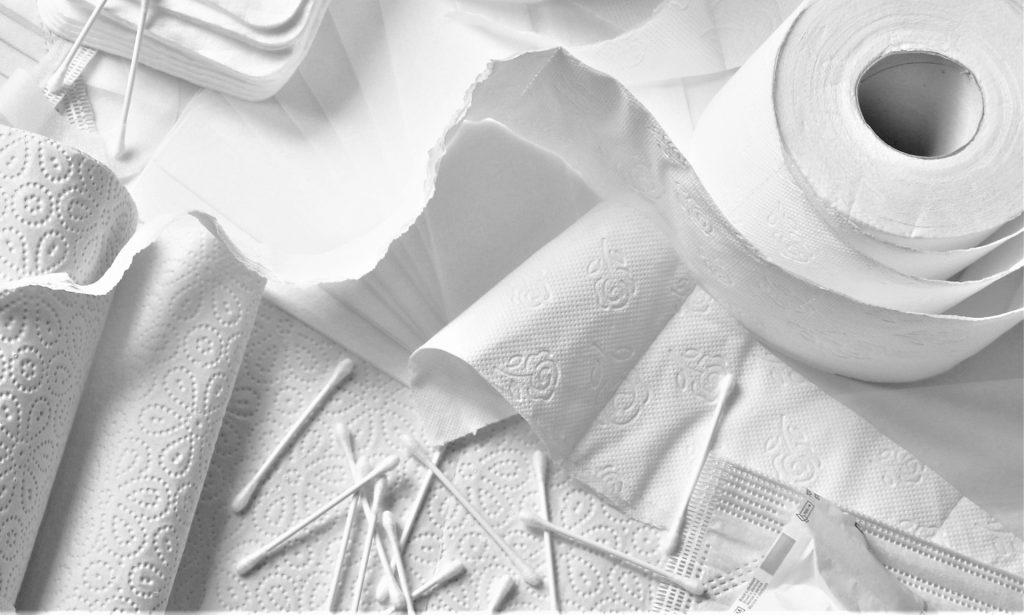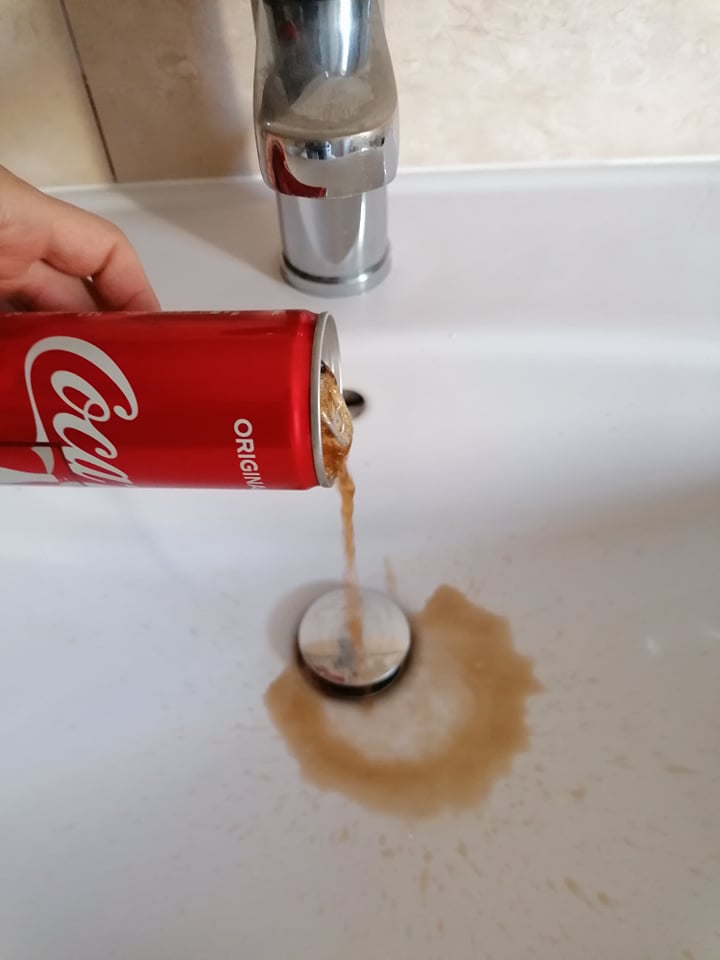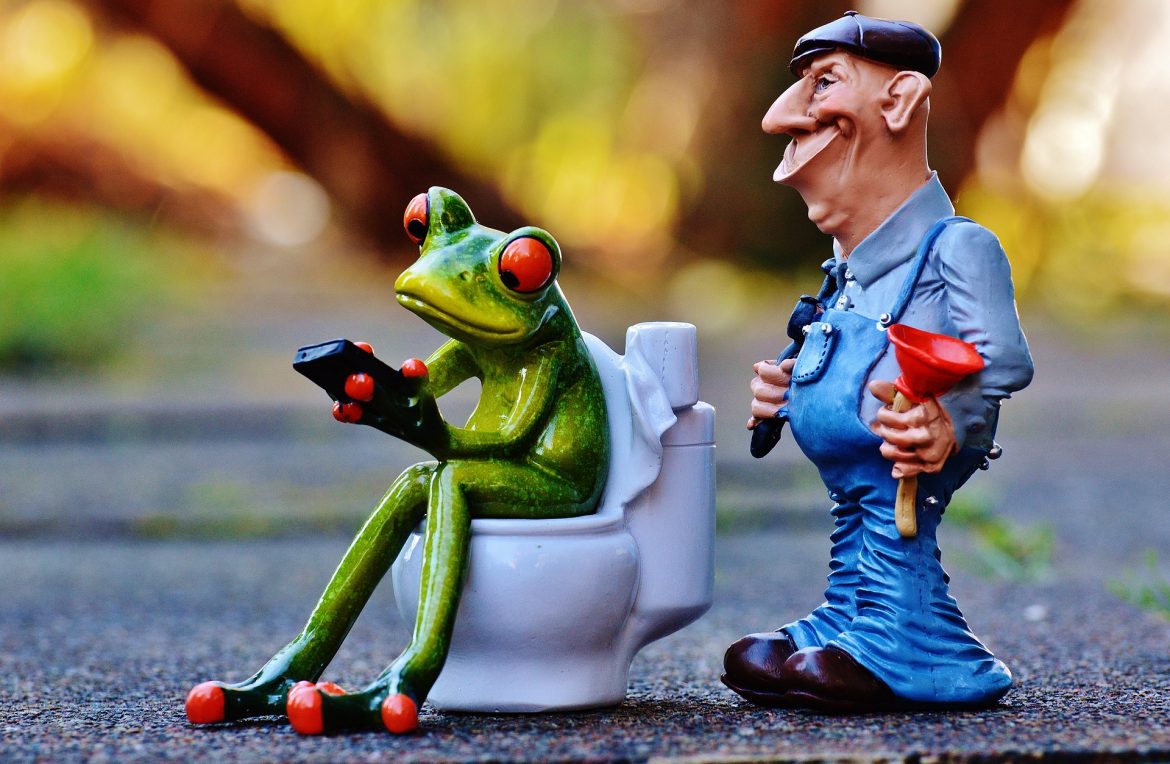Zapewne każdy z nas bardzo lubi kiedy nasz dom, mieszkanie utrzymane jest w porządku i czystości. Jednak jak to w życiu bywa, mogą nam się przytrafić różne nieprzewidziane zdarzenia. Zapchana kanalizacja jest jedną z takich sytuacji, która może uprzykrzyć nam życie. Zatkana toaleta, niedrożny odpływ umywalki czy brodzika mogą spędzać sen z powiek wszystkim domownikom.
Jeśli akurat przytrafi Wam się taka sytuacja, a pod ręką nie będzie sprawdzonego hydraulika, zawsze mogą się przydać alternatywne domowe sposoby na udrażnianie rur.
W dalszej części artykułu będziecie mogli dowiedzieć się jakie środki, preparaty czy narzędzia ku temu właśnie Wam posłużą, aby zapobiegać zapchanej kanalizacji.
Instalacja kanalizacyjna – lepiej zapobiegać niż leczyć.
Zapchana kanalizacja to nic przyjemnego… Aby instalacja kanalizacyjna poprawnie działała, musi być koniecznie dobrze wykonana. O najczęściej popełnianych błędach pisaliśmy w innym artykule – warto przypomnieć sobie jego wartościową treść, aby uniknąć niepotrzebnych komplikacji.
Istotnymi czynnikami wpływającymi na stan instalacji okazują się być korzenie drzew. Przed zamontowaniem instalacji, warto zwrócić uwagę na to, jak rosną drzewa na naszej posesji. Najmniejsze pęknięcia bądź przecieki mogą być wywołane właśnie przez oplatające i wchodzące do rur korzenie drzewne. Blokują one tym samym przepływ wody, powodując uszkodzenie rur. Warto pamiętać, aby monitorować stan instalacji, szczególnie jeśli ma ona swoje lata.
Zapchana kanalizacja – najczęstsze problemy.
Niedrożne rury i zapchane odpływy zazwyczaj objawiają się początkowo drobnymi problemami, jednak bardzo szybko mogą przerodzić się w poważną awarię.
Zatkane rury odpływowe mogą powodować powolny spływ wody , przecieki, korozję, a nawet może dojść do cofnięcia się ścieków powodując przy tym kosztowne naprawy. Najczęstszymi przyczynami niedrożnej, zapchanej kanalizacji okazuje się być to co ląduje w naszej instalacji. A są nimi:
a). Mydło
Pewnie nikt by nie przypuszczał, że mała kostka mydełka może spowodować blokadę odpływu umywalki czy wanny… A jednak, tradycyjne mydlane kostki wykonane są z tłuszczu. Połączenie ich z minerałami w wodzie pozostawiają twardą szumowinę, która osadza się we wnętrzu rur. Warto zatem zadbać o systematyczne czyszczenie rur kanalizacyjnych za pomocą preparatów, najlepiej biologicznych, które oprócz udrożnienia odpływu zadbają też o nasze środowisko. Więcej o preparatach biologicznych i ich przeznaczeniu możecie dowiedzieć się z naszego krótkiego filmiku produktowego, do obejrzenia którego serdecznie Was zapraszam 😉
b). Włosy
Są kolejnym winowajcom blokady instalacji kanalizacyjnej, gdyż łączą się kleistymi substancji tworząc zbite czopy. Aby zapobiegać wpadaniu włosów do kratek ściekowych lub odpływów warto zaopatrzyć się w specjalne do tego osłony, które będą je wyłapywały. Oczywiście nie możemy zapomnieć o ich regularnym czyszczeniu i usuwaniu zbędnych resztek.
c). Zbyt duża ilość papieru toaletowego

Nadmiar papieru toaletowego, chusteczek nawilżonych, płatków kosmetycznych może prowadzić do zapchanej kanalizacji.
Jego nagromadzenie się może spowodować niedrożny odpływ, a zatkana toaleta, z której nie możemy skorzystać będzie dla nas bardzo uciążliwa… W sytuacji kiedy woda może nadal przepływać przez toaletę po spuszczeniu wody, najprawdopodobniej z problemem poradzi sobie tradycyjny przepychacza wc , aby przesunąć i rozpuścić część papieru. Gorzej natomiast wygląda sprawa jeżeli toaleta wypełni się po brzegi wodą i zatrzyma się, wówczas należy niezwłocznie wezwać hydraulika.
d). Odpady żywnościowe
Resztki jedzenia nigdy tak naprawdę nie powinny spłynąć do ścieków. Jeśli jednak zdarza się, że do odpływu przedostają się jakieś niechciane drobinki, warto zaopatrzyć się w specjalny młynek do rozdrabniania resztek pożywienia. Natomiast jeśli chodzi o liście herbaty czy fusy po kawie – zdecydowanie lepiej je kompostować, aby zapobiec niechcianym zatorom.
Jak odetkać mocno zatkany zlew, odpływ umywalki czy udrożnić toaletę.
Przepychanie rur kanalizacyjnych nie należy do łatwych i przyjemnych zadań. Warto się zastanowić, czy sytuacja wymaga sięgnięcia po środki chemiczne dostępne na rynku. Wielokrotnie dochodzi przy ich częstym stosowanie do korozji i uszkodzenia rur kanalizacyjnych. Zdecydowanie lepszym rozwiązaniem są preparaty biologiczne chroniące rury a przy tym środowisko naturalne.
Często zapominamy lub nie mamy świadomości, że istnieją jeszcze domowe sposoby na udrażnianie rur. Oto kilka ciekawych i sprawdzonych przykładów:
a). Wybielacz
Jest jedną z pierwszych rzeczy, którą należy wypróbować na odblokowanie toalety bez użycia Kreta czy innych środków chemicznych. Należy wlać go do toalety , pozostawić na minimum 3 godziny, po czym obficie spłukać wodą – to powinno pomoc w udrożnieniu rur.
b). Przepychacz do WC
To nic innego jak tylko gumowy kielich z drewnianym uchwytem. Jest najbardziej klasyczną metodą udrażniającą odpływ kanalizacji. Prosty w obsłudze, tani, niewyczerpalny, a przede wszystkim bardzo ekologiczny. Jedynym minusem jest to, że nadaje się tylko do udrażniania samych odpływów. Kielich przyciska się mocno do odpływu, a następnie odciąga. Jednocześnie co jakiś czas umożliwić przedostanie się wody do odpływu. Czynność powtarzać kilkakrotnie: góra – dół!
c). Płyn do naczyń z gorącą wodą
Jeżeli przytrafi nam się zapchana kanalizacja, zatkana toaleta np. większą ilości papieru toaletowego lub w muszli wyląduje ręcznik papierowy, który jest zdecydowanie grubszy niż papier toaletowy – warto sięgnąć po dobry, gęsty płyn do naczyń. Należy wlać sporą ilość płynu bezpośrednio do muszli i zalać obficie gorącą wodą. Ta mieszanka skutecznie powinna rozpuścić złogi papieru czopujące odpływ kanalizacji.
d). Przetykanie zlewu sodą oczyszczoną i octem
Te dwa preparaty zazwyczaj goszczą u każdego z nas w domu, tak więc, aby udrożnić syfon pod zlewem nie trzeba nawet wychodzić z domu. Wszystko co będzie potrzebne do mikstury pół szklanki wcześniej wspomnianej sody i pół szklanki octu. Sodę należy wsypać do odpływu, następnie wlać ocet (dozować małe porcje). Wówczas wytworzy się piana, która penetruje syfon, a roztwór sody i octu rozpuszcza włosy i inne zanieczyszczenia. Po wlaniu całej zwartości octu, należy zamknąć odpływ korkiem na ok 20 min. Po upływie określonego czasu zalać odpływ bardzo gorącą, ale nie wrzącą wodą. WAŻNE: Wrzątku nie należy wlewać do plastikowych rur kanalizacyjnych.!
e). Udrażnianie rur Coca – colą

Udrażnianie odpływów, syfonów za pomocą coca -coli.
To chyba jeden z najszybszych i najtańszych sposobów na udrożnienie odpływu w umywalce czy brodziku. Napój zawiera w swoim składzie kwas ortofosforanowy, który ma właściwości odrdzewiające i przepychające. Warto go zastosować, gdy z łazienki wydobywa się nieprzyjemny zapach, a woda w zlewie czy wannie spływa godzinami.
f). Udrażnianie rur sodą kaustyczną
Czyli wodorotlenkiem sodu. Jeśli już większość metod zawiodła warto spróbować udrażniać zatkany odpływ toalety właśnie sodą kaustyczną. Do tego celu warto napełnić wiadro wodą i dodać do niej 2 łyżki wspomnianego wcześniej specyfiku. Następnie całość wlać do toalety i obficie przepłukać wodą. Warto jednak pamiętać, że soda to bardzo drastyczny środek, którego nie należy używać zbyt często. Może ona bowiem uszkodzić nie tylko toaletę, ale i rury kanalizacyjne w całym domu. Przy jej stosowaniu konieczne jest zabezpieczenie dłoni rękawiczkami a oczu specjalistycznymi okularami. Środek bardzo skuteczny, jednak warto pamiętać o jego rozważnym stosowaniu.
Podsumowując, istnieje wiele sposobów na udrożnienie zatorów zarówno z kuchennej instalacji sanitarnej, jak i łazienkowej. Ważne jest, aby nie dopuszczać do przedostania się odpadów żywnościowych do wnętrza rur. Poprawna, domowa polityka gospodarowania odpadami powinna stać się nawykiem dla Wszystkich domowników.
Aby nie dopuścić do zapychania się kanalizacji przede wszystkim ogromne znaczenie ma profilaktyka, która może pomóc uniknąć naprawdę wielu szkód. Systematyczne dbanie o drożność rur poprzez stosowanie np. ”domowych sposobów” pozwoli wyeliminować zatykanie odpływów i rur raz na zawsze!
Dlatego warto już dziś zadbać o kompleksową i systematyczną ochronę systemu kanalizacyjnego, nim będzie za późno…bo jak głosi stare porzekadło: „lepiej zapobiegać niż leczyć”.
